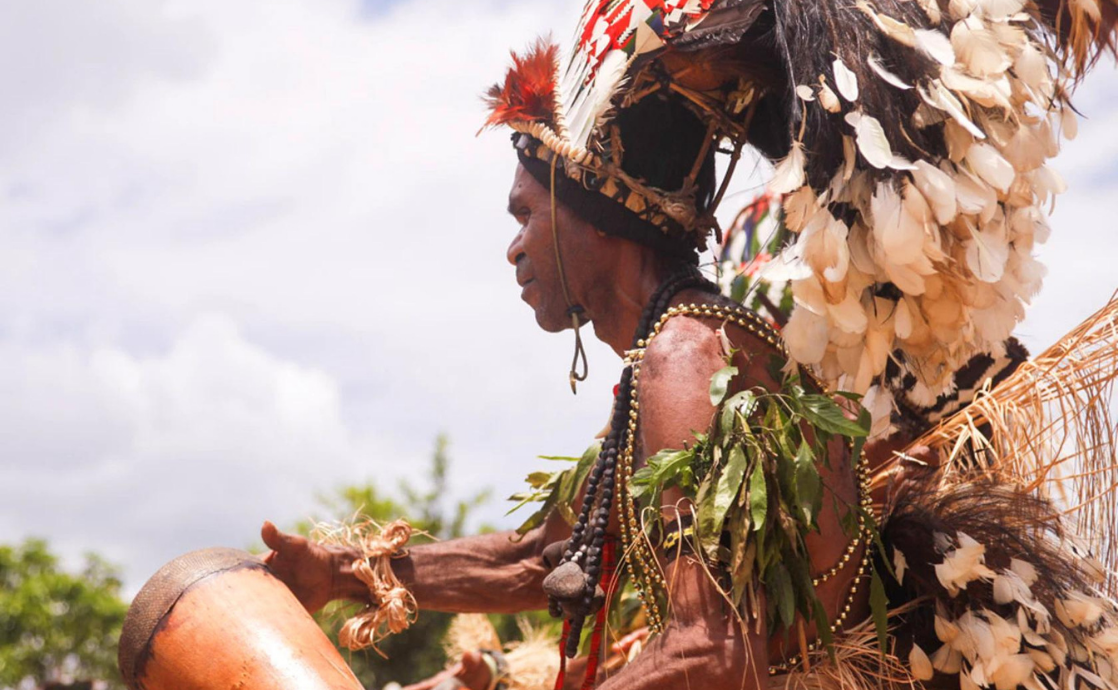The Bahá’í Faith, an emerging religious paradigm, beckons a profound examination of indigenous spirituality across the globe, with a particularly intricate interplay evident in Papua New Guinea. This island nation, steeped in diverse cultural vestiges and a rich tapestry of beliefs, provides an illuminated lens through which Bahá’í teachings can contextualize and appreciate local traditions. This dialogue invites contemplation, as it seeks to unite the wisdom of indigenous spirituality with the universal principles of the Bahá’í Faith, cultivating a harmonious synthesis of understandings that can propel humanity towards collective progress.
To embark on this exploration, one must first appreciate the indelible significance of spirituality in the life of the Papua New Guinean peoples. The indigenous systems of belief are woven with the threads of ancestral reverence, nature worship, and communal integrity. These spiritual paradigms evoke the notion of interconnectedness, reminiscent of the Bahá’í view of unity within diversity. The local understanding of the world as a constellation of interdependent relationships bears striking resemblance to the Bahá’í assertion—“The earth is but one country, and mankind its citizens.” This fundamental tenet drives both systems towards a collective aspiration for peace and understanding.
Critical to this synthesis is an examination of the modes through which indigenous spirituality manifests in Papua New Guinea. Tribal rituals, oral traditions, and a pantheon of deities illustrate the vibrant spiritual landscape that characterizes the region. These customs not only impart cultural identity but also impart vital ethical frameworks that align closely with Bahá’í principles of justice, equality, and service to humanity. For instance, community gatherings that celebrate harvests serve not only as sustenance for the body but also as nourishment for the soul, fostering a deep sense of belonging and collective responsibility—an echo of the Bahá’í conviction that individual well-being is intrinsically linked to societal health.
Moreover, the revered natural elements in the Papua New Guinean spiritual context resonate profoundly with Bahá’í teachings that emphasize reverence for the natural world. The mountains, rivers, and jungles—imbued with spiritual significance—can be construed as manifestations of divine creation, deserving of respect and stewardship. Bahá’í writings extol the virtue of protecting the Earth, positing it not merely as a resource for human exploitation but as a sacred trust. This alignment presents an opportunity for Papua New Guineans to harmonize their indigenous beliefs with broader ecological concerns, galvanizing collective action for environmental stewardship.
Continuing this exploration, we encounter the intrinsic role of prophets and messengers in both indigenous and Bahá’í traditions. Indigenous beliefs often recount the tales of local spirits or ancestors who impart wisdom and guidance, akin to the Bahá’í reverence for a succession of divine messengers—each playing a pivotal role in shaping humanity’s spiritual evolution. This continuity of revelation is underscored by the Baha’is’ acknowledgment that each prophet brings forward teachings that are pertinent to the era in which they arise. In doing so, the Bahá’í Faith advocates for a deeper understanding of the teachings of indigenous leaders, recognizing their contributions as integral to the broader tapestry of human spirituality.
Delving deeper into the ethical underpinnings, the concept of service occupies a preeminent position in both realms. In Papua New Guinea, the ethos of communalism fosters a spirit of cooperation and shared responsibility. Elders impart wisdom that encapsulates the idea of sacrifice for others—a principle that resonates poignantly with Bahá’í teachings on selfless service and dedication to humanity. Charity, while traditionally perceived through the lens of philanthropy, evolves into a communal act invigorated by compassion. This unique synthesis can serve as a model for interaction, encouraging mutual respect and collaboration among diverse spiritual communities.
The quest for truth, prevalent in the Bahá’í Faith, mirrors indigenous practices that uphold an unwavering pursuit of wisdom. Elders in Papua New Guinea are often seen as the custodians of knowledge, balancing the understanding of the natural world with spiritual insights. Their teachings, passed orally through generations, reveal the richness of experience and observation—mirroring the Bahá’í imperative of investigating truth independently. This shared reverence for wisdom cultivates a fertile foundation for dialogue, inviting the intermingling of perspectives that serve to enhance both spiritual domains.
In conclusion, the interplay between Bahá’í teachings and indigenous spirituality in Papua New Guinea heralds a significant opportunity for both communities to amalgamate their insights within the crucible of cooperation. As both paths advocate for unity, service, respect for nature, and reliance on the wisdom of community, they create a vibrant symphony of understanding. Each thread, carefully woven together, reveals an intricate design of shared aspirations and mutual edification. Embracing this synthesis sets forth a collaborative journey, illuminating the path forward towards a brighter, unified future.
